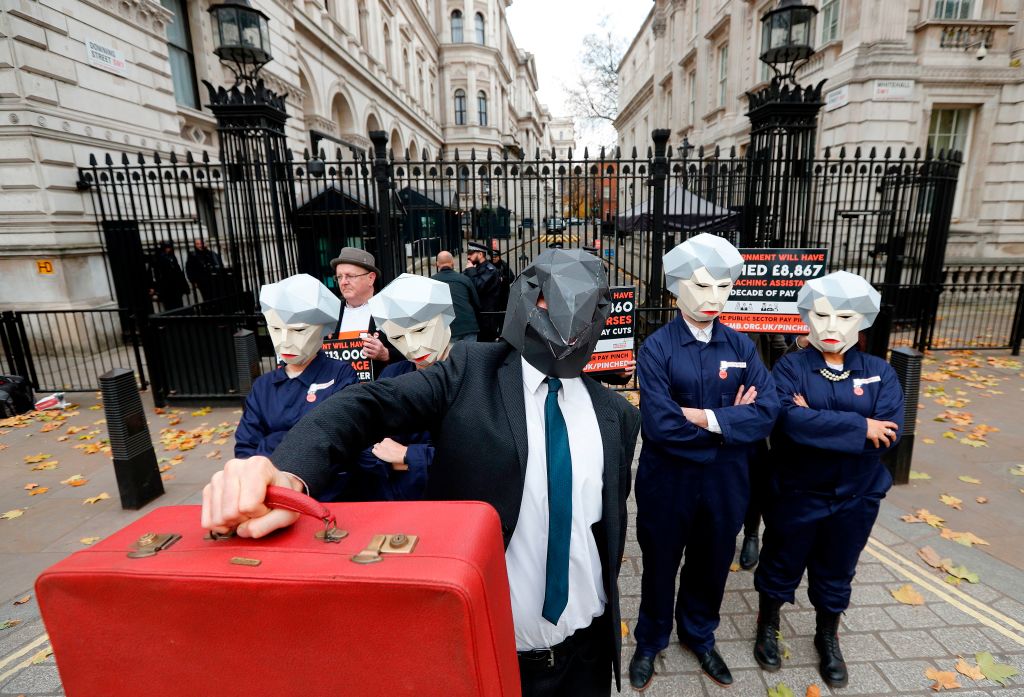If you want to get on in right-wing politics, it is essential you master the art of vice signalling. You must show you are tough, hard-headed, a dealer in uncomfortable truths, and, above all, that you live in ‘the real world’ – as if any of us had the option of living anywhere else.
In a Spectator piece entitled ‘the awful rise of virtue signalling’, James Bartholomew staked a fair claim to have invented or at least fleshed out vice signalling’s antithesis in 2015.
It’s noticeable how often virtue signalling consists of saying you hate things. It is camouflage. The emphasis on hate distracts from the fact you are really saying how good you are. If you were frank and said, ‘I care about the environment more than most people do’ or ‘I care about the poor more than others’, your vanity and self-aggrandisement would be obvious.
And your dilettantism. Once you’ve said ‘I hate Daily Mail/poverty/racism,’ you don’t have to work with Syrian refugees or give money to charity. A mere expression of righteousness is enough. In a famous case study, American academics revealed that of the 1,174,612 people who liked ‘Save Darfur’ Facebook pages almost none gave money to help the hundreds of thousands of refugees who fled the conflict each year.
Vice signalling is as vain and self-aggrandising as virtue signalling is. And if you judge it by its professed political objectives, rather than its malign political consequences, as pointless. To take a current example, since they came to power in 2010, the Tories have made a point of cracking down on the benefits of the poor. Only by imposing the toughest sanctions could the feckless and the freeloading be persuaded to stop living on handouts and find a job. (The fact that most poverty is concentrated in families where the adults have low-wage jobs was glossed over.) A five year study by York University concluded this week that sanctions had failed. They did not get the jobless into work, and were more likely to reduce their targets to ill-health and crime. Mentally ill, sick and disabled claimants suffered the most, as anyone who has seen the cruel obstacles the state bureaucracy places in their way would have already guessed.
The Department of Work and Pensions merely shrugged its shoulders and issued a bland statement about ‘tailor(ing) requirements to individual cases,’ which the research flatly contradicted. Esther McVey, its boss, has made her career as a hard woman of the right. What would happen to her reputation if she ordered an immediate suspension of the programme and said words to the effect of, ‘We introduced the sanctions regime with the good intentions of protecting public money and preventing fraud but the evidence shows they are having malign consequences’? My guess is that her support in the Tory party and press would have fallen away because vice-signalling is based on assumptions its proponents do not dare to state explicitly. – not even to themselves
There are, obviously, examples of benefit fraud, just as there are inefficient public sector institutions and illegal immigrants. The right has no coherent policies to deal with them and so produces sweeping measures that, like a machine gun on a battlefield, kill everything in view. Thus the Osborne/Hammond cuts take no notice of whether public money has been well or wisely spent in the past. However well a state institution has done, it has to be punished. Benefit sanctions are not incentives to work but acts of bureaucratic cruelty applied regardless of whether they are effective or not. The Windrush scandal was the apogee of vice signalling. The Home Office created a hostile environment not just for illegal immigrants but for everyone with a brown skin or foreign accent. Theresa May and Amber Rudd did not care that landlords and employers would discriminate against those who could not pass as native British. They did not care that black British citizens would face harassment and deportation. Finding real illegal immigrants, like finding real benefits cheats, would require Conservatives to employ more public servants who could investigate conscientiously and deal justly. Austerity and their own prejudices against the public sector meant they would never do that.
H.L. Mencken defined puritanism as ‘the haunting fear that someone, somewhere, may be happy’. Much the same applies to modern conservatism. The fear that someone, somewhere may be freeloading drives them to mount attacks on citizens who have committed no crime. In order for the guilty to be punished the innocent must suffer.
Their supporters applaud them for it. The right-wing core vote, like the left-wing core vote, wants its prejudices confirmed. As American journalists say of Donald Trump’s supporters, ‘they take him seriously but not literally’. They know he’s a liar but as long as he upholds their resentments and hurts their enemies they do not care.
Equally, it does not matter to their British counterparts that sick people are being persecuted. Like the hipster who announces that he grieves for the suffering people of Darfur and then does nothing to help them, the practical consequences of vice signalling are no concern of theirs. They want to hear reasons to keep taxes low not evidence that justifies raising them.
Once again the emphasis is on hate. With vice-signalling, the barely concealed objects of hatred are the poor and the foreign. Conservatives protest that this is not the case. The say they want only to target scroungers rather than the deserving poor and illegal rather than legal immigrants. If this were true, then revelations that the benefit sanctions regime is not only failing but hitting the very people the government claims to want to help would lead to the policy being scrapped. Nothing of the sort will happen because it would send entirely the wrong signal.







Comments